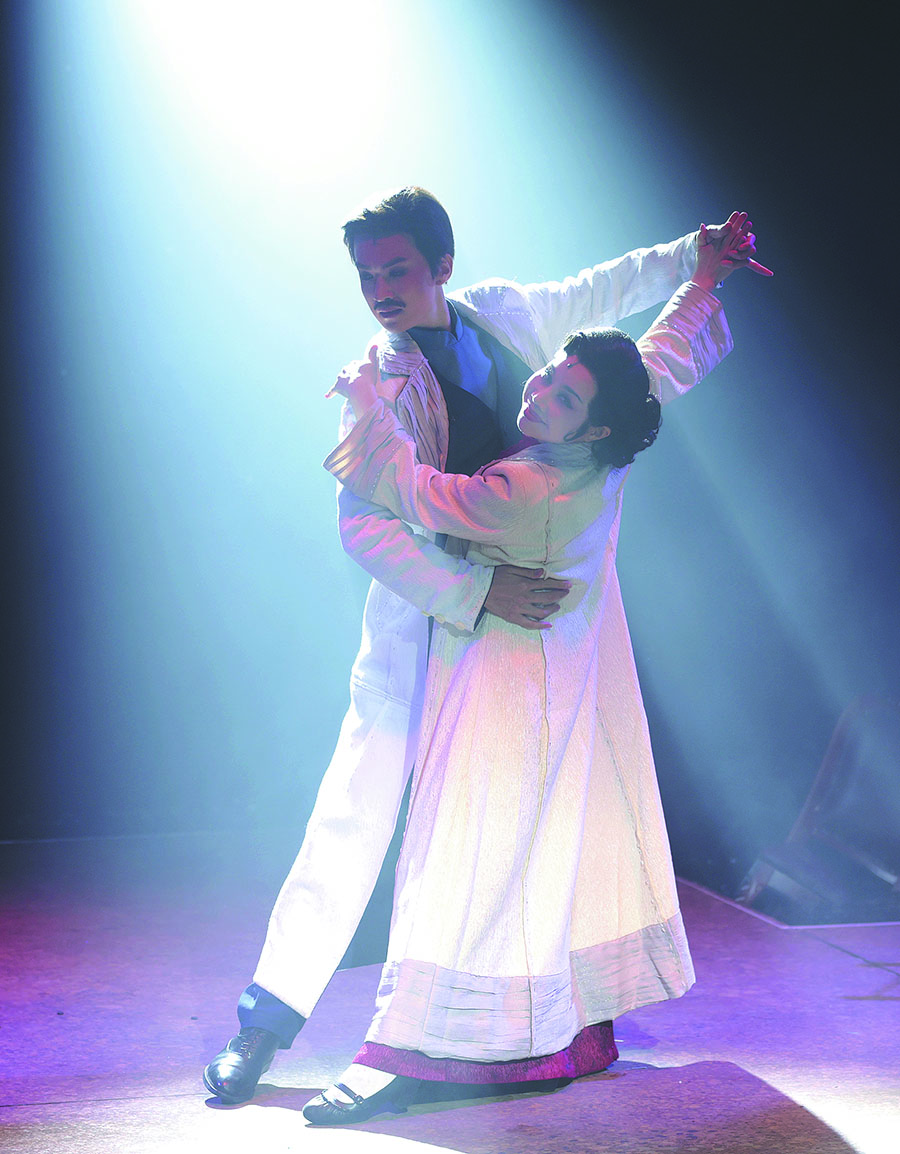

Yuju Opera is one of the most popular Chinese regional operas and has a rich history and distinctive characteristics that set it apart from other forms. Its musical style incorporates a variety of traditional instruments, including the erhu (a two-stringed fiddle), the pipa (a four-stringed lute), and the yangqin (a hammered dulcimer), and the singing style is characterized by its clear articulation and emotional expressiveness.
Tolstoy's novel is a social panorama of Russian life in the late 19th century, from the upper to the lower classes. The plot follows Dmitry Nekhludoff, a young man from high society, who seduces Maslova, a maid in his aunt's household. When she becomes pregnant and is dismissed, she spirals downward into prostitution. Ten years later, Nekhludoff is doing jury service at a murder trial and meets up with the defendant, who turns out to be Maslova. He feels guilty, and comes to see his actions as the source of her downfall — all the more so when she is mistakenly convicted and sentenced to hard labor — and decides to devote himself to saving her.
In the Chinese adaptation, the story takes place against the backdrop of early 20th century Shanghai. The protagonists are Liu Daofu, a young man from a wealthy family, who has returned to Shanghai after studying abroad, and a young maid, Qiu Hua.
As the audience are immersed in the unfolding drama, they are invited to explore the interplay between personal salvation and societal upheaval.
The cross-shaped stage represents the crossroads of existence, on which characters face pivotal decisions that will shape their destinies. At the intersection, Liu and Qiu embark on a journey of redemption, confronting their pasts and the weight of their choices.
The very design of the stage encourages the audience to reflect on their own lives, emphasizing the universal nature of struggle and the quest for forgiveness. Surrounding the stage are stones that symbolize a mire, evoking the challenges and entanglements that often impede progress. This imagery powerfully conveys the sense of being trapped in circumstances that seem insurmountable. The presence of broken furniture serves as a poignant reminder of the turbulence and instability of the times, grounding the narrative in a historical context that resonates with viewers.
"This is our first stage production for small theaters. The three-sided seating allows spectators to be enveloped in the performance, and breaks down the barriers typically present in traditional theater," says Yuju Opera actress Zhang Yanping, who plays the role of Qiu. "As the audience sit in close proximity, they see every nuanced expression, and hear every whisper, making the emotional highs and lows of the characters more palpable. This intimacy creates an atmosphere where the audience feel they are not just observers, but integral parts of the story, sharing the characters' joy and sorrow."
Zhang, who is the director of the Center for Protection, Inheritance, and Development of Theatrical Arts of Zhengzhou, Henan province, has been performing Yuju Opera since she was 11. In 2015, the 55-year-old was awarded the China Theatre Plum Blossom Award — the country's top award for theater and opera performers.
She says that Yuju Opera encompasses a wide range of themes, including historical events, folklore, love stories, and moral tales. Its narratives often focus on human relationships, loyalty and justice, reflecting the values and traditions of Chinese culture.